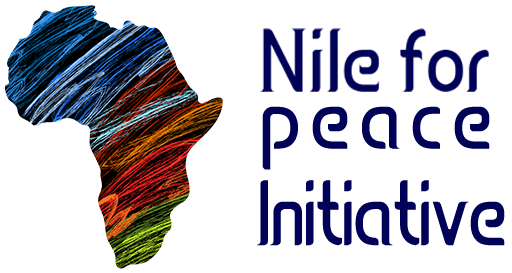Why Nile For Peace Initiative
Concerned over the ongoing dispute concerning the construction of the Grand Ethiopian Renaissance Dam and other projects along the Nile River we collectively aim to prevent disagreements in the Nile Basin region and the wider Continent by encouraging fair use of the waters for the benefit and comprehensive and sustainable development for all citizens;
We appreciate that there is a significant importance of protecting and assisting all African countries to resolve and avoid conflicts over the Nile and other water-related resources. Water is life and the centrality and invaluable purpose of water to all forms of life can be an engine of growth and sustainable development
The Nile River can be used as a demonstration of how neighboring countries in the East, North, Horn of Africa and the Great Lakes Region can work for regional political, economic and social integration (as stipulated in the original vision of Organization of African Unity OAU/African Union (AU), based on the Nairobi Vision, Sustainable Development Agenda 2030 and Agenda 2063: the Africa We Want;
What we are doing
We recognize the centrality and invaluable purpose of water to life, and how water can be an engine of growth and sustainable development; and aware that the peace and security of the region is at stake; and further cognizant of the fact that the Nile, like many other International Waters, can set a successful example for turning potential conflict into cooperation.
Connecting Citizens
Advocating for Fair and Equitable Use of International Waters
Preventing Conflict
Strengthening Good Neighborliness
Information Sharing on Equitable and Sustainable use of International Waters
What we are Doing
There is a deep concern about the growing disagreement between the governments of Ethiopia, Sudan and Egypt over the building, filling, and operating of the Great Ethiopian Renaissance Dam (GERD), which is currently in the final phase of its construction. Ethiopia has insisted that it will continue with the filling of the Dam without any agreement.
Any conflict between the three countries defeats the object and spirit of the African Union, which are centered around a common vision of a united and strong continent and by the need to build partnership between governments in order to strengthen solidarity and cohesion among the African peoples. Disagreement between these countries scrapes Africa’s conviction that conflicts represent a major impediment to the socio-economic development of the continent and the need to promote peace, security, and stability as a prerequisite for the implementation of the continent’s development and integration agenda. The core objectives of the African Union as provided for in article 3 of its Constitutive Act, namely sub-article (a) calls for the AU to “achieve greater unity and solidarity between the African countries and the peoples of Africa;” sub-article (f) “promote peace, security, and stability on the continent” and sub-article (k) “promote co-operation in all fields of human activity to raise the living standards of African peoples.
Tripartite negotiations about the technical and legal aspects of GERD started in 2011 yet they are still marred by disagreement. Efforts of the African Union through the outgoing and present Chairpersons continue to fall short of breaking through the deadlock so far.Pressure is mounting, especially as the dates for Ethiopia’s unilateral decision to commence the second filling of GERD’s reservoir in July 2021 are approaching.
While we believe that access to energy is an important element that enables African peoples to exploit and enjoy the resources at their disposal and to realize their right to development there is recognition that resources of the River Nile and its tributaries are a common good for all the riparian countries and African riverine lands.
GERD, which is a mega African water project, is built on the Blue Nile River and situated a few kilometers upstream from the Sudanese-Ethiopian international borders. With its storage capacity of 74 billion cubic meters – equivalent to the entire annual flow of the Blue Nile at the Sudan border. The project is expected to have profound effects on the future of the three countries and the African sub-region, with a long-lasting impacts on the Continent’s longest river
While it represents an important development opportunity for Ethiopia as its prime owner, the impact of GERD on Sudan and Egypt cannot be overlooked. GERD is expected to boost socio-economic development in Ethiopia, regulate water flow and reduce the annual floods during the rainy season which will enable Sudan to better manage its irrigation and hydroelectric power system. But the dam will dramatically change the water flow regime of the Blue Nile River by flattening its hydrograph thus causing significant negative impact on Sudan and Egypt.
For the Nile, General Circulation Modeling scenarios by the Intergovernmental Panel on Climate Change (IPCC) indicate a possible future reduction in the Nile flow that ranges from 30 to 70%. Climate change impacts are not limited to river basins ;however, they also extend to African lakes, in particular, Lake Victoria, regarded as the source of the White Nile. This reduction will affect all Nile Basin countries; however, the negative effect on Egypt and Sudan will be doubled in case of the unilateral decision of Ethiopia to proceed with the second filling without agreeing with the downstream countries.
In case Ethiopia face any lose due to the filling delay, Egypt and Sudan should put all efforts to offer fair compensation to Ethiopia. The two downstream countries should also work with the international community to implement developmental projects in Ethiopia that support combating poverty and generating electricity.
